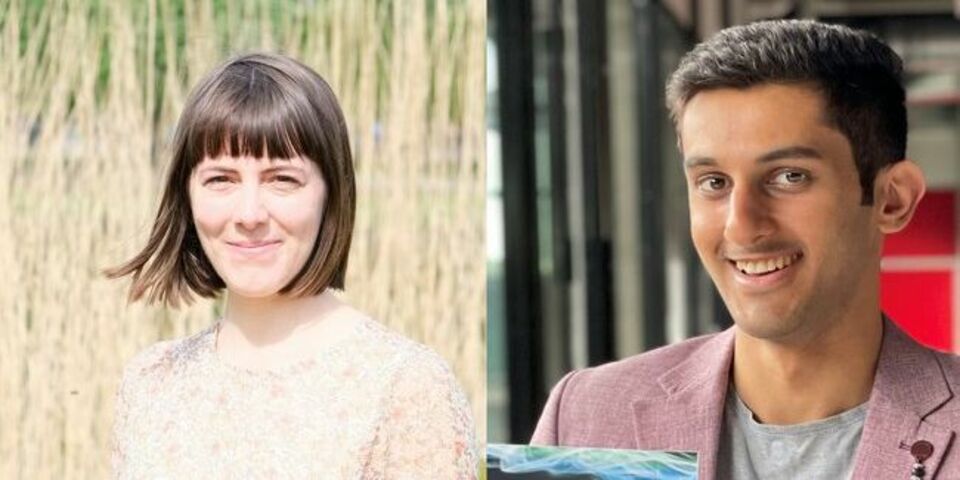Audience Award FameLab for TU/e researcher Jouy Bar
TU/e researcher Mohammad Jouy Bar received the Audience Award for his presentation about organs-on-a-chip at last night's Dutch final of the annual science communication competition, which was hosted online by TU/e on the occasion of the university's 65th anniversary. Alexandra Cloherty from Amsterdam UMC won the final with an impressive pitch on her research into decluttering viruses and will represent the Netherlands at this year's international FameLab final.
The winner of the audience award, Mohammad Jouy Bar is a PhD student at the department of Mechanical Engineering, and also winner of the audience award at the FameLab TU/e heat.
Jouy Bar talked about his research to develop so-called organs-on-a-chip. These artificial organs made of silicon rubber mimic the human organ, and pave the way for cheap and faster clinical testing of drugs, for instance for Covid-19. His presentation can be watched below.
Trash bag
Like all contestants, Alexandra Cloherty was not allowed to use slides in her talk. Only words, and an optional prop, in her case a black stuffed HIV virus and a plastic trash bag, were allowed. The jury, who came to its decision after 20 minutes of deliberations, praised Alexandra for the clarity with which she presented a difficult subject. “She was really able to connect to audience, and showed lots of energy and enthusiasm”, according to jury chair Liza Cornet, herself winner of FameLab 2020.
Besides Liza, the jury included Ruchi Bansal of the University of Twente, Jim Jansen, editor-in-chief for the science magazine New Scientist and Chiel van Heerwaarden, of Wageningen University. The event was presented by TU/e science information officer Barry Fitzgerald.
Autophagy
Cloherty’s research focuses on better understanding autophagy, a natural mechanism that our body has developed to ‘declutter’ viruses. Alexandra: “Just like our homes, cells can accumulate all kinds of stuff. But with cells the clutter consists of viruses. Cells use autophagy to collect these viruses, break them up and remove them. Just like we humans do when we are cleaning our house. By understanding autophagy, we can finetune it, helping our body to fight diseases like HIV.”
View the winning presentation below




Discussion